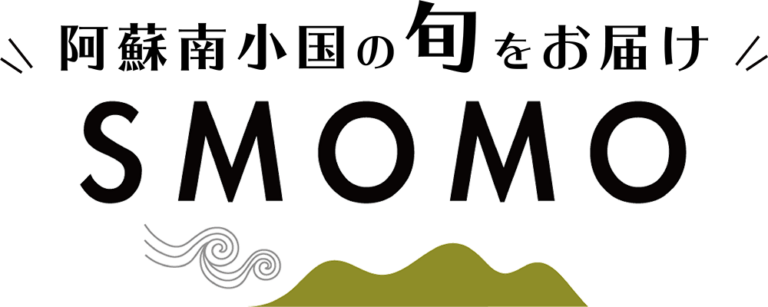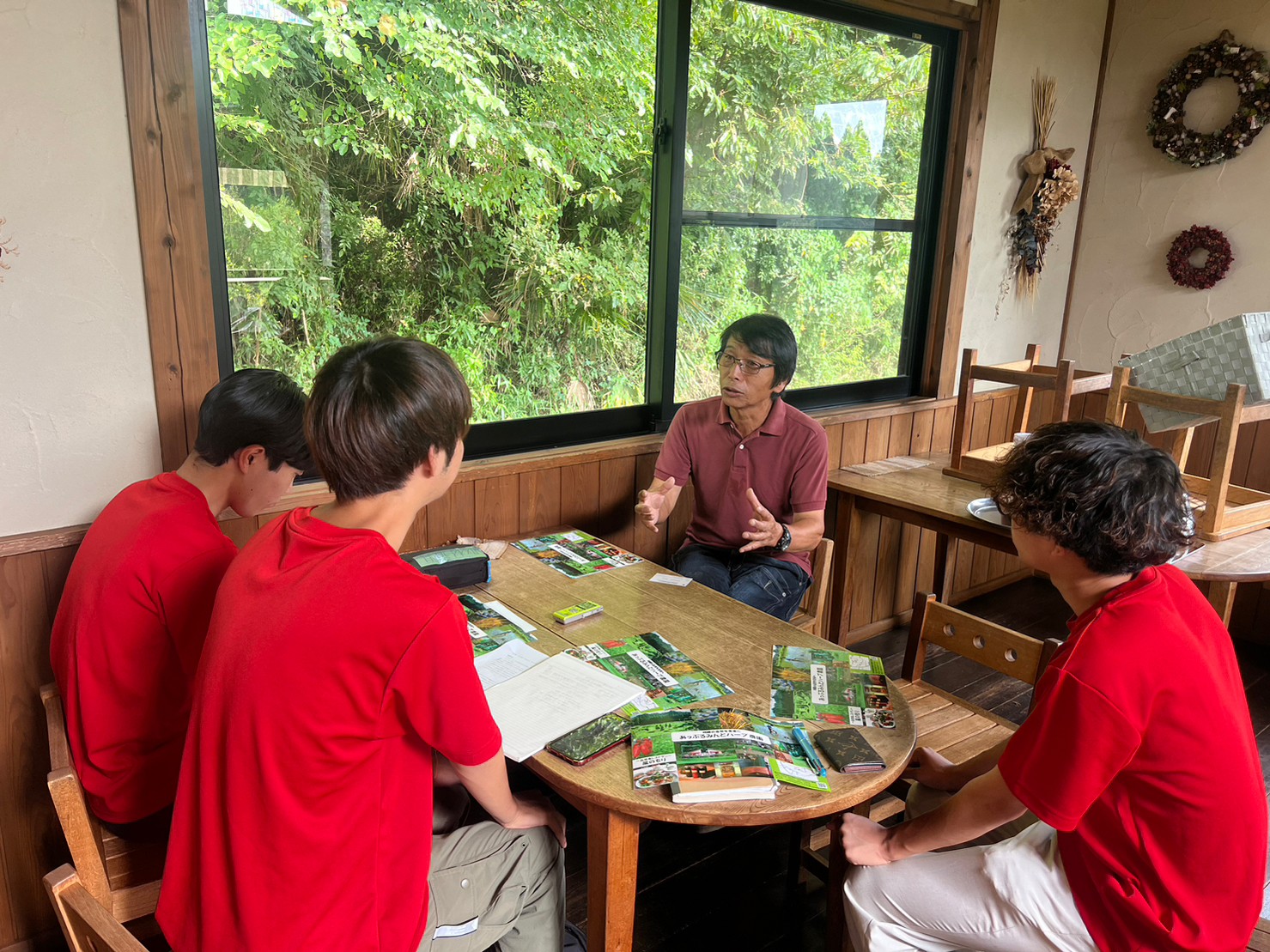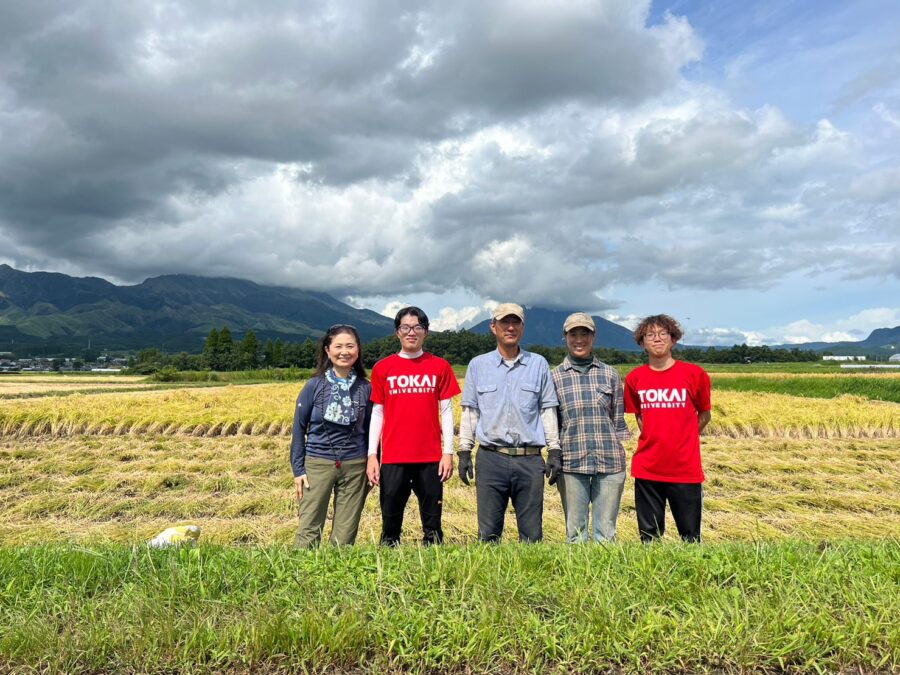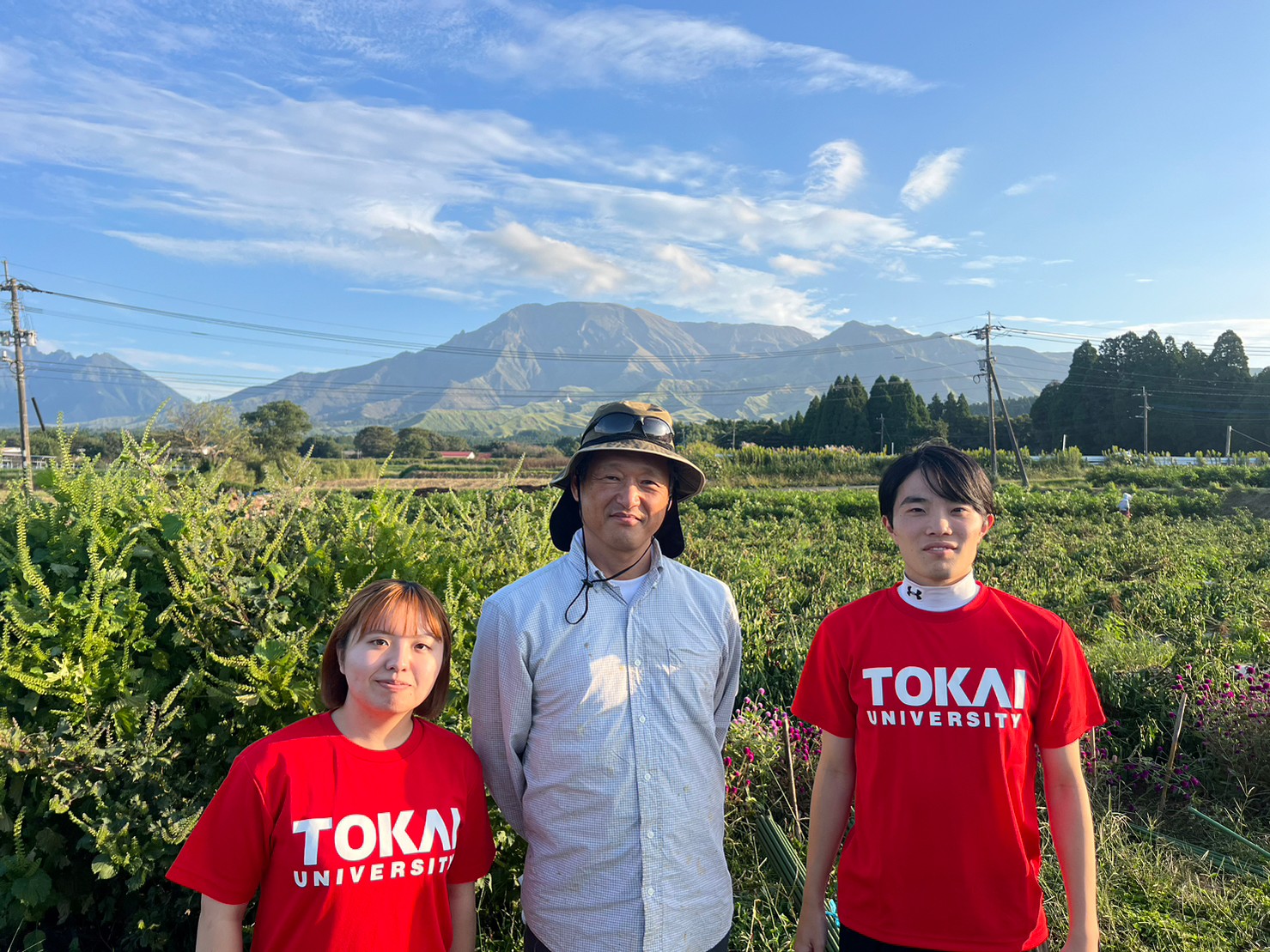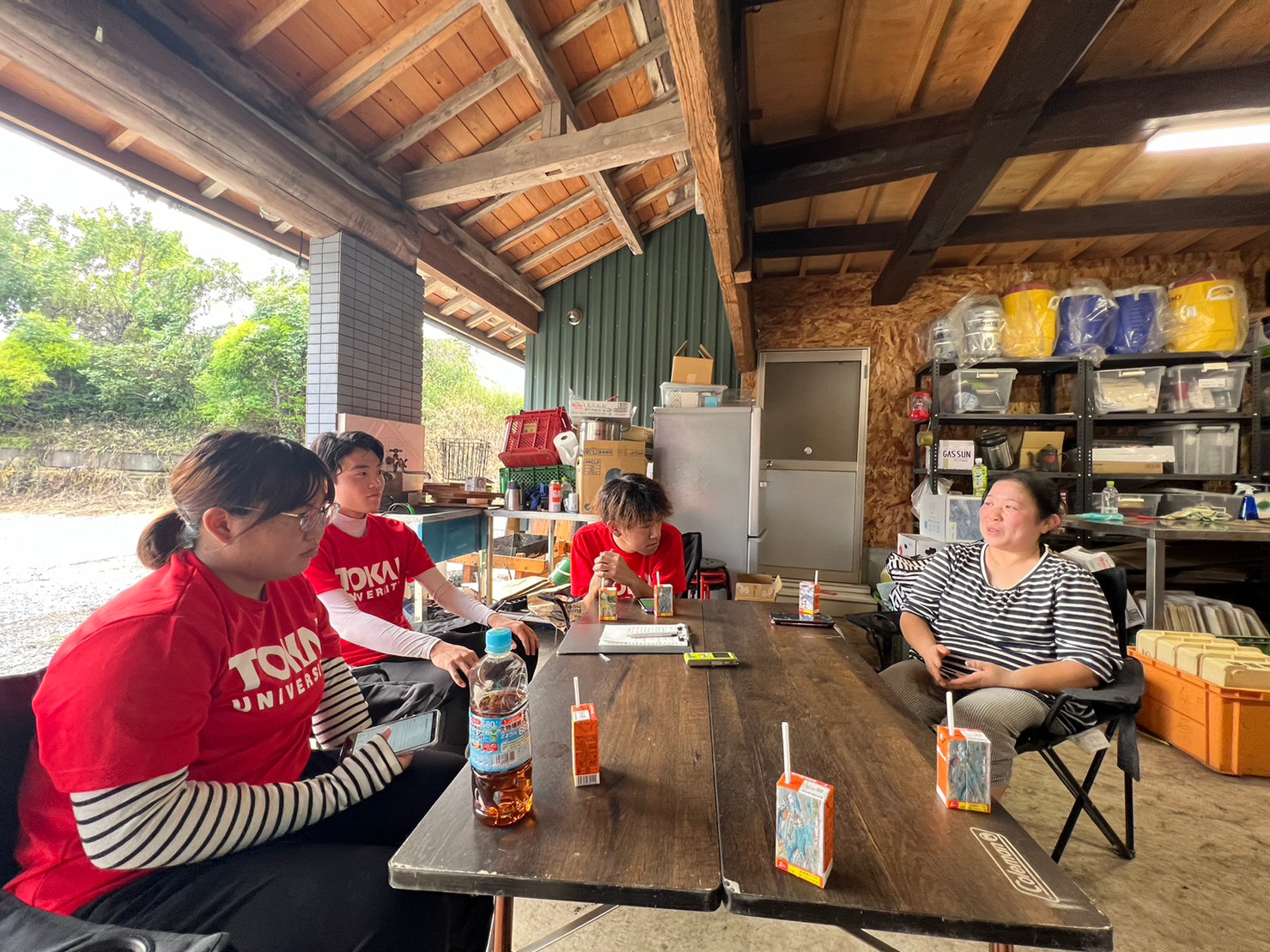Celebrating the 10th anniversary of “Global Agricultural Heritage Aso” certification
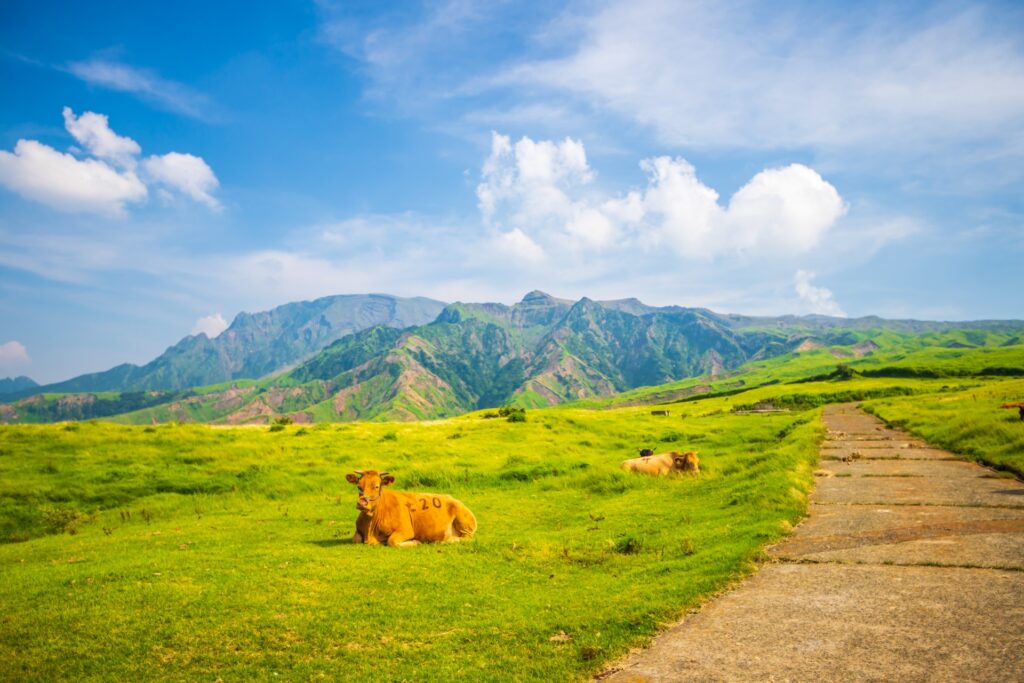
The grasslands of the Aso region have been maintained through agriculture such as burning and grazing for more than 1000 years.
Aso, which has grown together with grasslands, is blessed with diverse agriculture, rare flora and fauna, and traditional farming culture.Aso was recognized as a Global Agricultural Heritage Site in May 2013 as being of global value. We are celebrating our 5th anniversary.
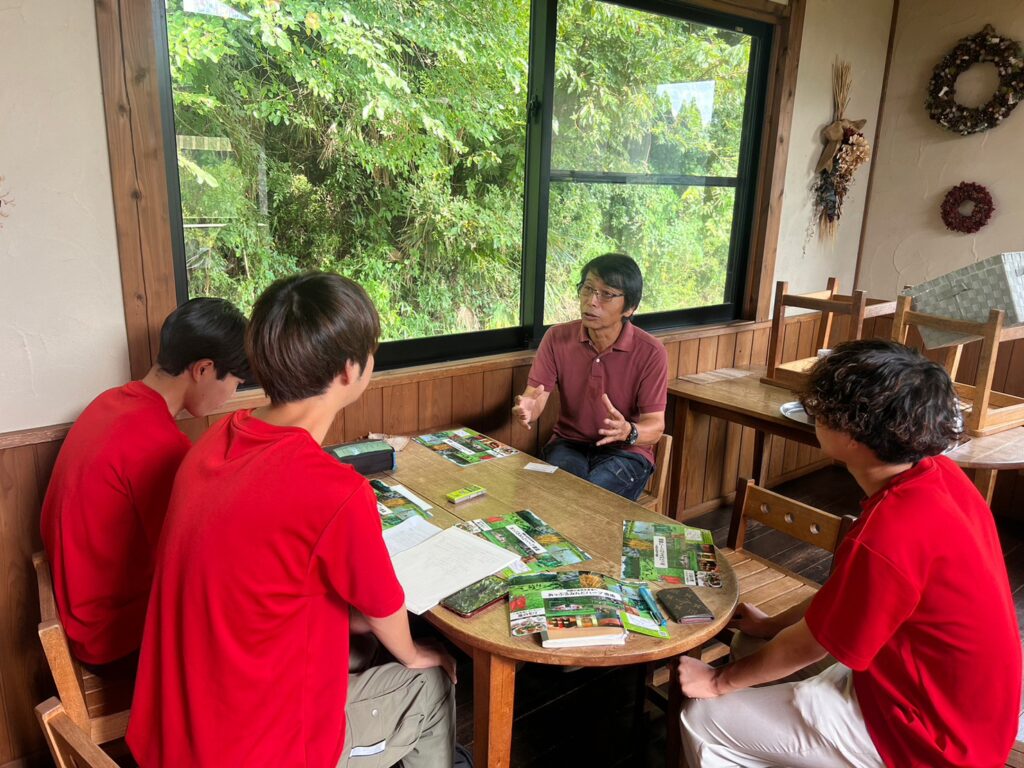
The Tokai University Ecotourism Research Group conducts research activities to learn about ``ecotourism,'' a system that preserves and utilizes regional treasures.
To commemorate the 10th anniversary of the World Agricultural Heritage designation, students from the Ecotourism Study Group visited and interviewed people who support Aso's agriculture in order to learn more about the agriculture, culture, and history that are the treasures of the Aso region. .
By the way, do you know about "organic agriculture" and "environmentally friendly agriculture"?
Organic farmingSimply put, it refers to agriculture that does not use chemical pesticides.
environment-friendly agriculturerefers to a way of farming that respects the natural environment.
These two are what support Aso, a Global Agricultural Heritage Site.
This time, we spoke to Shoichi Umeki of Minamioguni Town, who practices farming that is friendly to the natural environment.
Shoichi Umeki(Shoichi Umeki)San
Lives in Minamioguni Town, Aso District.We started a tourist farm in the 60s, and in 2 we completely shifted to organic farming and opened the Apple Mint Herb Farm.He also runs a natural food restaurant called Kaze no Mori, and currently runs the farm and restaurant with his wife and several staff members.
[Why we do environmentally friendly agriculture]
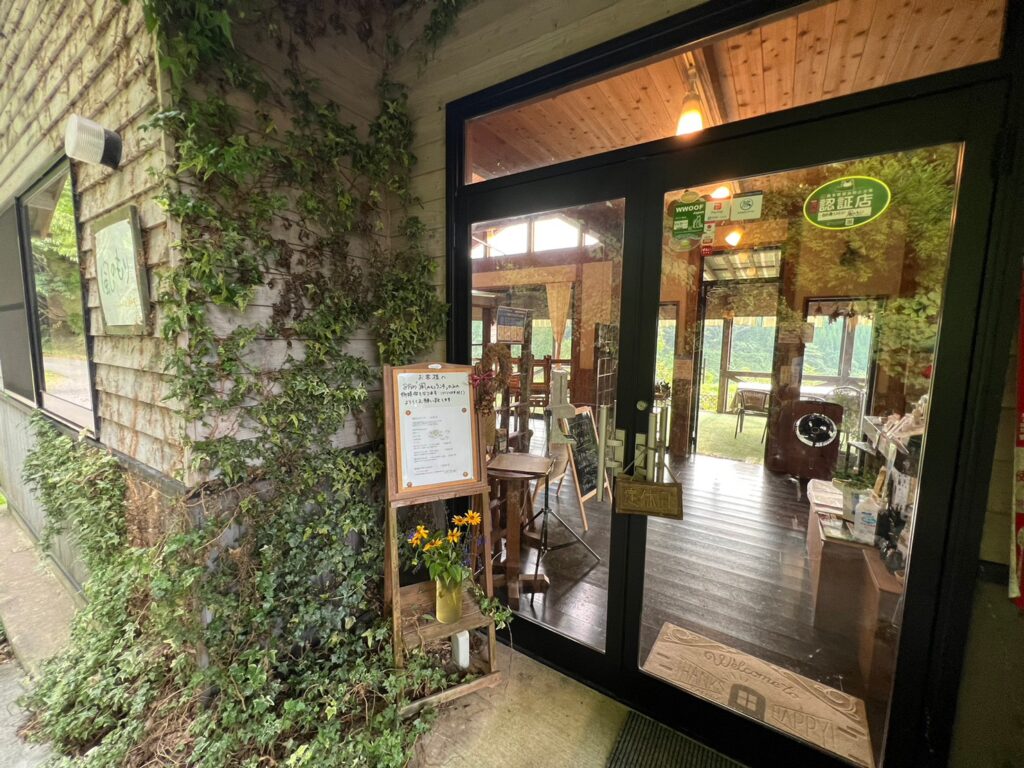
First, we talked about Kaze no Mori, a restaurant run by Mr. and Mrs. Umeki.
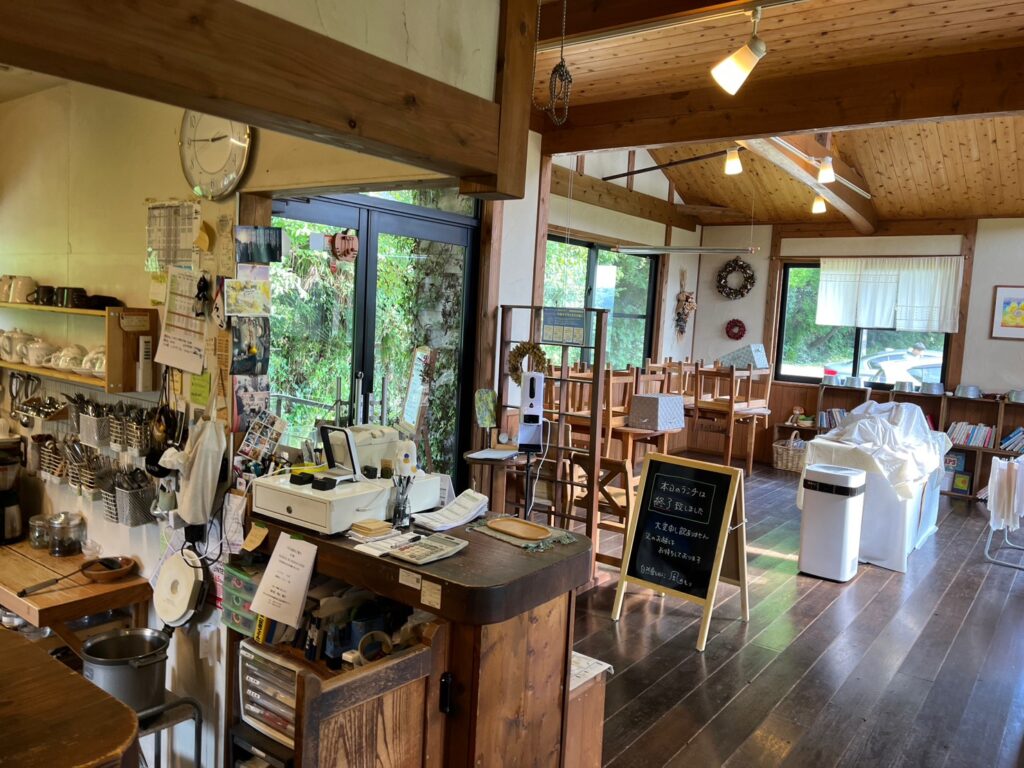
---Please tell us why you started the restaurant "Kaze no Mori"!
Mr. Shoichi Umeki:I used to run a tourist farm. Around 2005, he was teaching tourists visiting the farm how to make wreaths and making and selling jam.From there, I decided to take the plunge and open a restaurant.
---Do you have any ideas for balancing agriculture and tourism?
Mr. Umeki:We share the farming duties with myself and the restaurant with my wife. It will be difficult if both of you don't work hard. Is it difficult for one person to balance both? It is called the 1th industry, but if any one of production, processing, and sales is missing, it will be difficult.From now on, I'm thinking of narrowing down my work to a certain extent.The good thing about running a restaurant is having people try the food we've created and get a taste of it.
Mr. Umeki was smiling and seemed to be having fun, but he also talked about the hardships he had faced so far, such as the difficulty of rebuilding after being damaged by a typhoon.
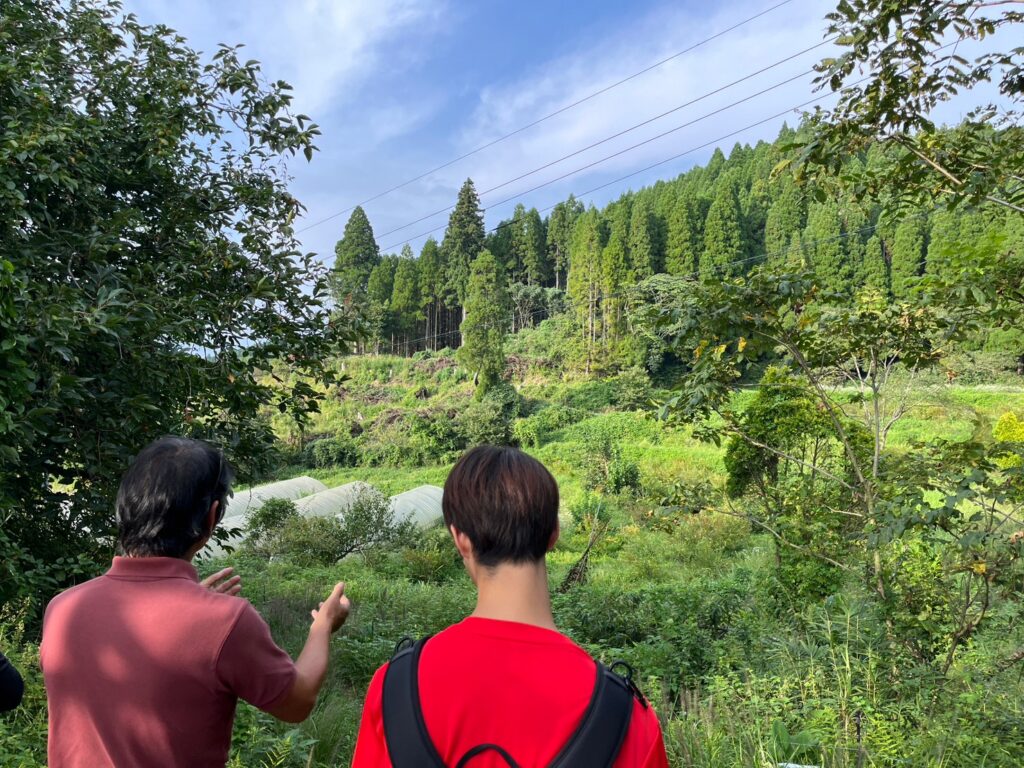
---Please tell us why you started organic farming and why you are so particular about it!
Mr. Umeki:When we started our tourist farm, we heard from consumers and people in urban areas that they were interested in things like organic farming and things that are good for their health, so we thought that pesticide-free products might sell better in the future. That's what I thought.Around this time, the bubble economy had burst, and more people were thinking about the essence and value of things, so we thought about adding value by continuing to practice agriculture that is kind to nature.
The reason I was so particular about organic farming was that at first I thought it would get people interested or that it would sell for a higher price than other products (lol).But right now, I think the best encouragement I have is to hear my grandmother fold her hand and say "thank you" when she receives the produce.She doesn't buy things with money in mind, but rather with people who understand the value of the item and buy it for her.She couldn't stop this easily, she thought, she had no choice but to keep going.
The important thing about organic farming is that ``everything is recycled, like using grass from grasslands for compost.''On the other hand, he said with a serious look on his face, ``Organic farming doesn't use chemical pesticides, so people tend to think that it doesn't cost much.It may seem like it's free, but it's not free.''
Lastly, we talked about the Global Agricultural Heritage Sites.
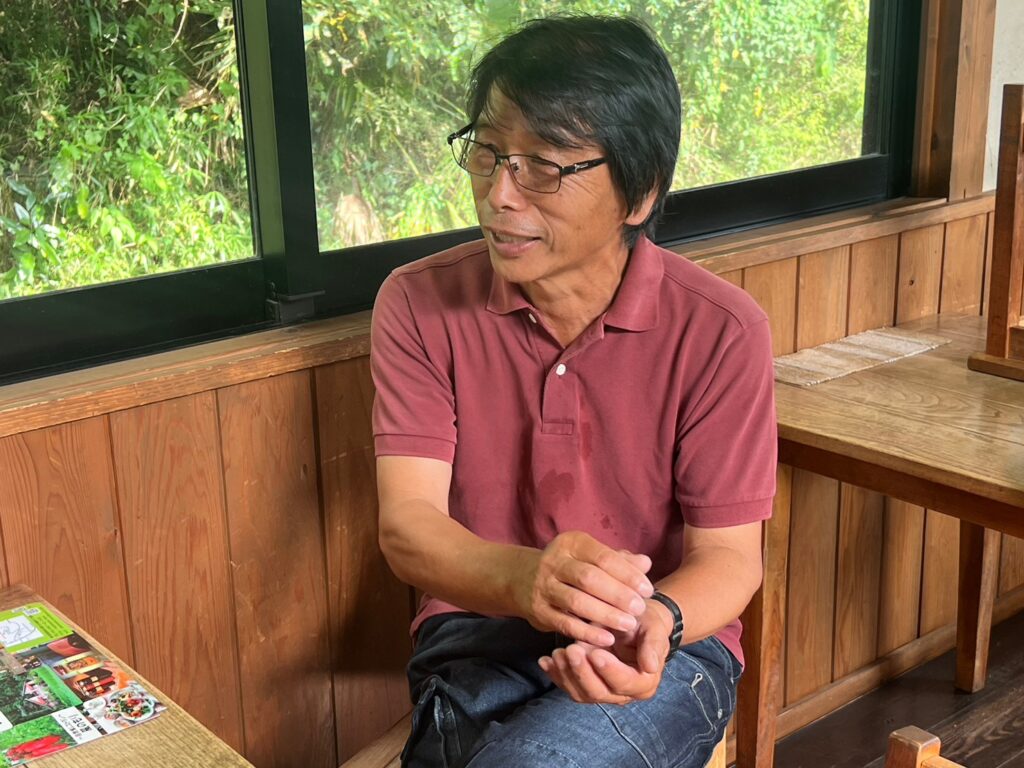
---Have there been any changes as a result of Aso's certification as a Global Agricultural Heritage Site?
Mr. Umeki: The registration of agricultural heritage did not have a strong impact on me.butI feel that by being registered as a World Agricultural Heritage Site, everything I have done so far has been recognized.I was able to do it.I was also able to accept that this kind of life is good.Young people and people who came for sightseeing told me that Aso is attractive.
Living in the countryside makes me wonder what's so good about such a countryside.I thought so myself.However, I gained confidence in Aso when people who came to see the sights told me, ``It's a beautiful place,'' and ``I like the clean air.''I was able to learn about the good aspects of the area from a tourist's perspective.
--- How can we pass on the value of Aso, a global agricultural heritage site, to future generations?
Mr. Umeki:I think it's okay to change even a little.When it comes to field burning, many of the people are elderly and the work is difficult.However, it is difficult to have young people continue to do the difficult work.Even if we think we must protect the grasslands at all costs, there is no point in doing so if the cows disappear or we can no longer raise them.
I think it is necessary to have a human-centered way of thinking,In order to protect this landscape as an agricultural heritage, the agricultural practices of the past must continue into the future.Therefore, it is necessary to create an environment that is conducive to farming.I wonder if it will become.
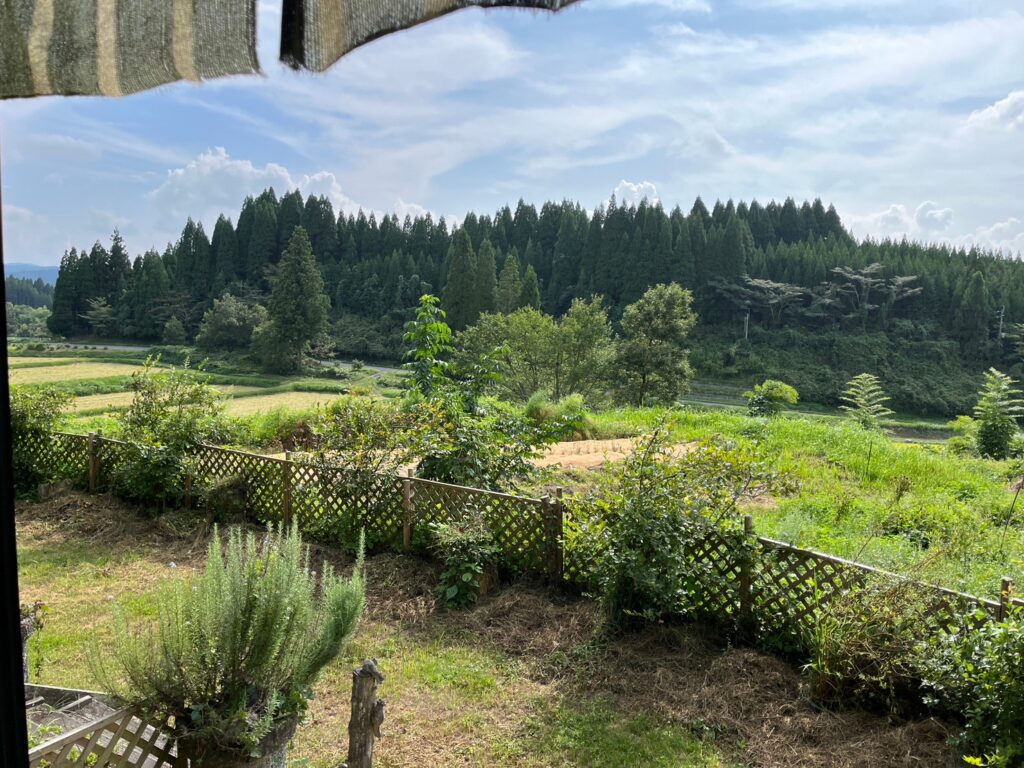
Mr. Umeki:In the future, Aso may not only focus on tourism, but also shift towards protecting its natural environment.In addition to tourism, Aso's pastures also serve other important purposes, such as feeding cows and horses and using wild grass for compost.In order to protect the landscape of Aso, it is important to take care of the pastures.
To that end, I think it would be good to create a group of professionals who do both tourism and burning, or to separate roles such as people who only do tourism.I think that by doing so, people in the field burning can focus on burning, and people in the tourism industry can focus on tourism.
I was thinking only about tourism, thinking that the Aso area would be recognized as a World Agricultural Heritage Site and that there would be more tourists.
However, I could feel Mr. Umeki's passion as a farmer that in the future Aso should protect its landscape and nature as a tourist resource, and that it is necessary to firmly continue the agriculture that has continued until now. .
in conclusion
During this interview, I was particularly struck by the words, ``We need to preserve the nature of Aso and the landscape of Makino.''I once again realized that the beauty of Aso's landscape has been preserved through the hard work of people like Mr. Umeki, such as burning the fields.
Mr. Umeki also said, ``Maybe it would be a good idea to make part of the Makino a broad-leaved forest and store water for the Makino.''
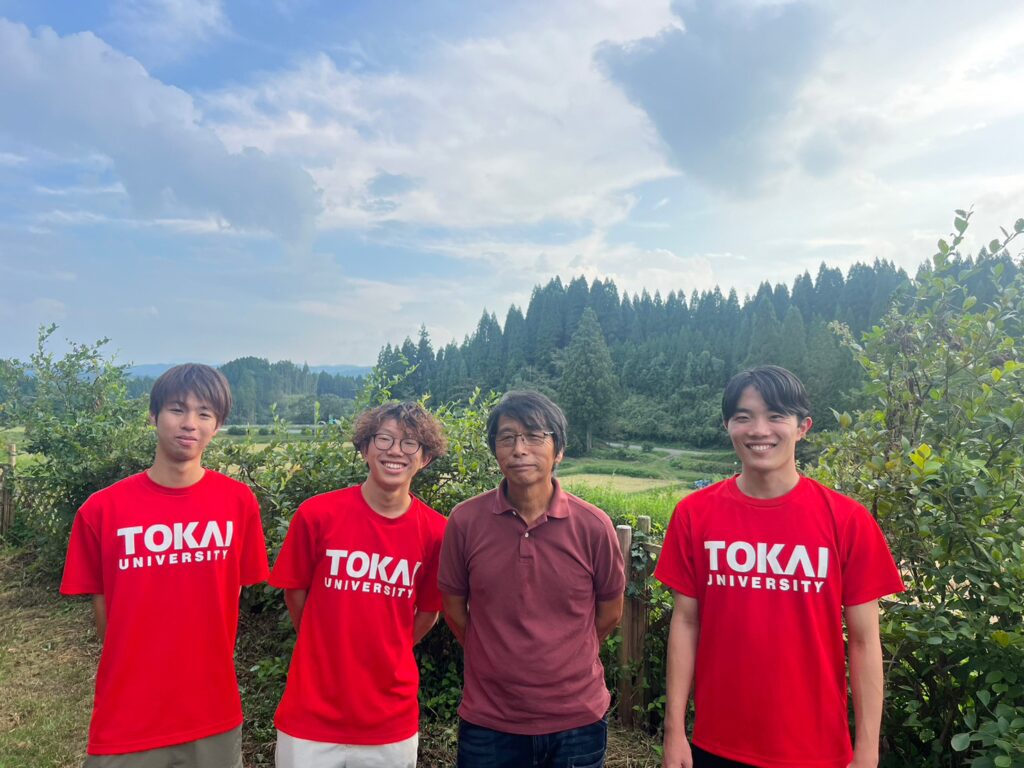
Now that the number of successors to burning fields is decreasing, it may be difficult to protect grasslands in the way they once were.There may not be much we can do, but I felt it was important to be even a little interested in Aso.
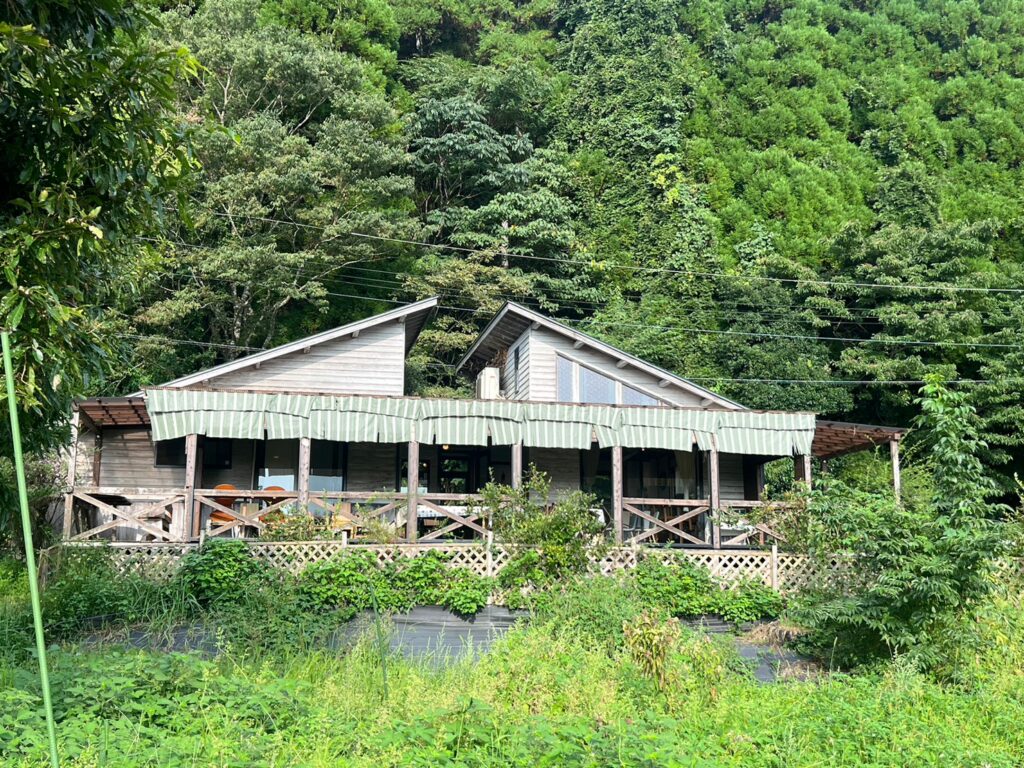
The restaurant we introduced this time is Kaze no Mori.When you actually visit, you'll find that the atmosphere is very nice, and when you step out on the balcony, you can enjoy the beautiful scenery of nature that spreads all around you.
You can also try handmade herbal tea, and we recommend the lunch set!
If you come to Minamioguni Town, be sure to stop by!
Natural food restaurant Kaze Mori is also participating in the Gourmet Fair in Aso, a world agricultural heritage site!
Click here for details on the Gourmet Fair
https://minamioguni.jp/archives/246991
Applemin and Herb Garden/Natural Food Restaurant Kaze Mori
[Address] 312 Manganji, Minamioguni-cho, Aso-gun, Kumamoto Prefecture
[Telephone number] 0967-42-1553
Tokai University Ecotourism Research Group 1nd year
Written by Ryutaro Tsujita
